Leading leaden lives
Updated: 2014-08-06 07:45
By Hou Liqiang and Feng Zhiwei (China Daily)
|
||||||||
Restricted recourse
Legal and environmental experts said it will be tough for the parents of children suffering from excessive amounts of lead in Dapu township to get compensation.
It will also be difficult to find the party responsible for any condition or ailment that the children might later suffer from because of their exposure to lead, they said.
According to a name list provided to China Daily by a resident of Dapu, more than 300 children who live around Meilun Chemical Materials factory in the town suffer from excessive amounts of lead. Most of the children were tested for the lead in 2012.
But local authorities said that 92 children were found to have excessive amounts of lead based on tests conducted in June for children living 600 meters around the factory. They said 315 of the 708 children living in the area were tested.
Among the 92 children, 82 of them had 100 to 199 micrograms of lead per liter of blood, eight had 200 to 249 micrograms and two had 250 to 449 micrograms.
Based on national health standards, the level of lead in blood for children should not be more than 100 micrograms per liter.
If lead levels in children exceed the national standard, their intelligence, physical growth, learning ability and hearing can be impaired.
For the children found to have 100 to 199 micrograms of lead per liter, the government will provide them with supplies of milk, calcium tablets and vitamin C, to help boost their nourishment and enough for them to use for one to three months. Those with 200 to 249 micrograms of lead per liter will receive supplies for three to five months.
The two children found with 250-449 micrograms of lead per liter of blood have been hospitalized in an occupational disease hospital in Hengyang.
The statement did not mention if those children will be compensated.
Duan Chengcheng runs a computer maintenance shop about 100 meters from the factory. His three children were found with excessive amounts of lead in 2012.
Taking the three children to the hospital can be challenging, Duan said.
"We have to take them to the hospital by bus and at least three adults have to go with them," he said.
Duan said he has spent more than 3,000 yuan ($485) taking the children for tests.
"I don't know where to treat their problems. And I don't have so much money for their treatment as well," he said.
Duan said his three children were excluded from the tests the government organized on June 20 as they are considered to be non-residents.
"The government never mentions any compensation," he said.
Zhang Hongbing lives opposite the factory and his two children were also found with excessive amounts of lead in 2012. He also said the government did not mention any compensation. Meanwhile, he is worried about his children suffering from any ailment as a result of the lead exposure.
"Who will be responsible for that?" asked Zhang.
Zhao Jingwei, a lawyer who specializes in environmental cases, said compensation for environment pollution is only for current problems.
"There is no clause for compensation for potential problems under related laws," said Zhao.
Ma Jun, head of the Institute of Public and Environmental Affairs, said the compensation for the children can be very low based on previous compensation in pollution cases.
"If the villagers appeal to the courts, the courts will not deal with it actively. Even though the court makes a verdict, the amount of compensation can be very limited," Ma said.
"There is still no effective way to get compensation for current problems, not to mention the compensation for potential problems in the future," Ma said.
Contact the writers at houliqiang@chinadaily.com.cn and wenxinzheng@chinadaily.com.cn.
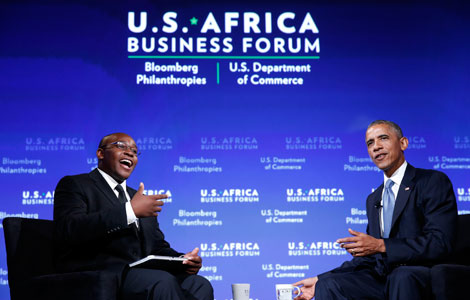
 US-Africa summit starts with development fora
US-Africa summit starts with development fora
 Two double-decker buses collide in New York
Two double-decker buses collide in New York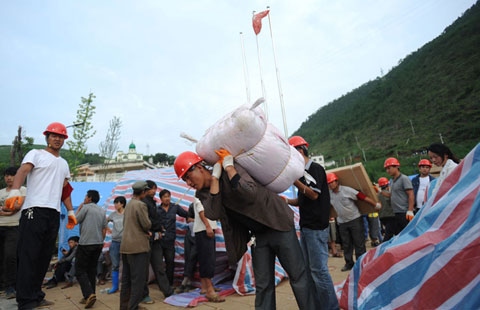
 Life in quake-hit areas of Southwest China
Life in quake-hit areas of Southwest China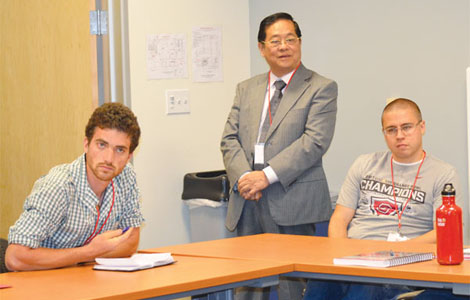
 Getting teachers to teach about China
Getting teachers to teach about China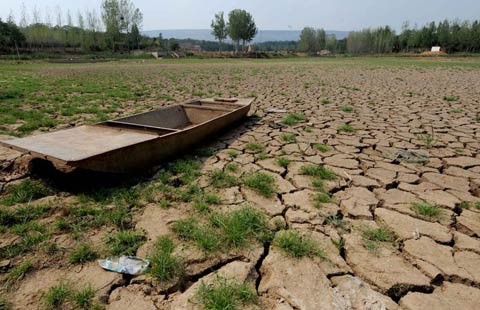
 Drought persists in Central China's Henan province
Drought persists in Central China's Henan province
 US artist creates lifelike baby animals
US artist creates lifelike baby animals
 US-Africa summit starts with fora
US-Africa summit starts with fora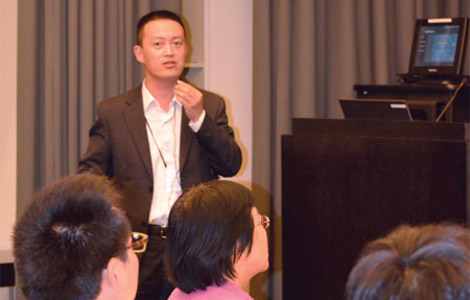
 Group aims to lure back skilled Chinese talent
Group aims to lure back skilled Chinese talent
Most Viewed
Editor's Picks

|

|

|

|

|

|
Today's Top News
Barrier lakes pose threat in quake-hit Ludian
2 Canadians probed in theft of State secrets
Envoy dismisses building freeze in S. China Sea
Microsoft gets warning: Don't block watchdog
New York tests possible Ebola victim
Premier Li visits Yunnan quake site
373 dead as strong quake jolts SW China
US ready to help China in quake relief
US Weekly

|

|








